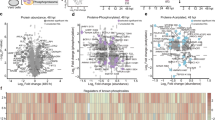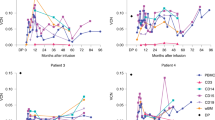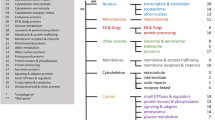Abstract
We have previously shown that noninfected human T-cell lines express the canonical 5.7 kb mRNA coding for the type β platelet-derived growth factor-receptor (PDGF β-receptor), whereas HTLV-I-infected T-cell lines express a novel PDGF β-receptor mRNA of 3.8 kb. In this report, we have extended those studies to molecularly characterize the 3.8 kb PDGF β-receptor mRNA and show that it has resulted from integration of an apparently undeleted HTLV-I provirus into the PDGF β-receptor gene in an orientation enabling expression of a truncated PDGF β-receptor mRNA using the 3′ HTLV-I long terminal repeat as a promoter. Further, NIH3T3 cells transfected with a plasmid containing the truncated PDGF β-receptor ORF plasmid generate colonies in soft agar with more cells per colony than untransfected cells, or cells transfected with the Tax 1 or PDGF-B (c-sis) plasmids. These results indicate that the truncated PDGF β-receptor protein acquires transforming capability and that HTLV-I-induced truncation of PDGF β-receptor may correlate with HTLV-I-associated neoplasia of human T-cells.
This is a preview of subscription content, access via your institution
Access options
Subscribe to this journal
Receive 50 print issues and online access
$259.00 per year
only $5.18 per issue
Buy this article
- Purchase on SpringerLink
- Instant access to full article PDF
Prices may be subject to local taxes which are calculated during checkout
Similar content being viewed by others
Author information
Authors and Affiliations
Rights and permissions
About this article
Cite this article
Chi, K., McPhee, R., Wagner, A. et al. Integration of proviral DNA into the PDGF β-receptor gene in HTLV-I-infected T-cells results in a novel tyrosine kinase product with transforming activity. Oncogene 15, 1051–1057 (1997). https://doi.org/10.1038/sj.onc.1201267
Received:
Revised:
Accepted:
Issue date:
DOI: https://doi.org/10.1038/sj.onc.1201267
Keywords
This article is cited by
-
Viruses exploit growth factor mechanisms to achieve augmented pathogenicity and promote tumorigenesis
Archives of Microbiology (2024)



